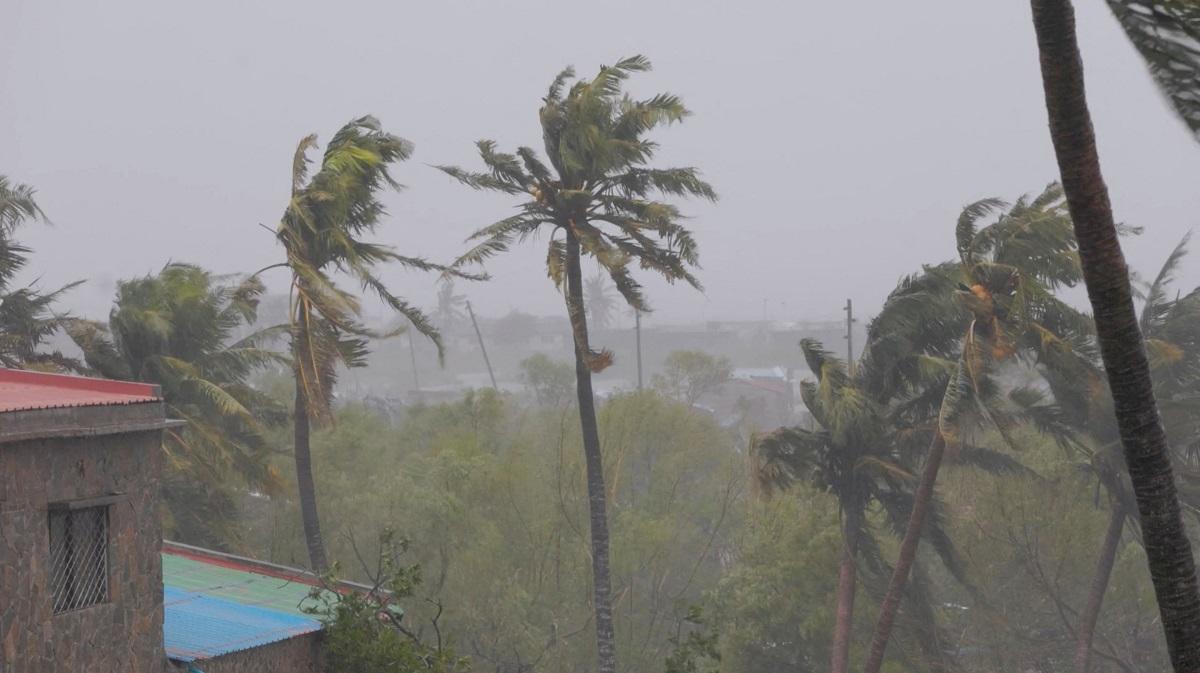Record-strength cyclone Freddy displaces hundreds in Mozambique

JOHANNESBURG — Cyclone Freddy displaced hundreds of people as it battered central Mozambique on Sunday after making landfall for a second time in a month, breaking records for the duration and strength of tropical storms in the southern hemisphere.
Communications and electricity supply in the storm area have been cut so the extent of the damage and number of casualties were not clear. At least one person was killed in Quelimane on Saturday when his house collapsed as the storm swept onshore.
More than 171,000 people were affected after the cyclone swept through southern Mozambique last month, killing 27 people in Mozambique and Madagascar. More than half a million are at risk of being affected in Mozambique this time, according to the UN Office for the Coordination of Humanitarian Affairs (OCHA).
State TV reported that hundreds were displaced across the storm's path. More than 650 houses were destroyed in Marromeu district, it said, while in Sofala province more than 3,000 people were affected by flooding.
After passing the port town of Quelimane, the storm was continuing inland towards the southern tip of neighboring Malawi, satellite data showed.
However, national power company Electricidade de Moçambique said that by mid-afternoon electricity had been restored in most areas, with the exception of Milange, Lugela, Maganja da Costa, Namanjavira and parts of the city of Mocuba.
"The wind was very strong into the night...There is a lot of destruction, trees fallen down, roofs blown off," UNICEF chief of advocacy, communications and partnerships for Mozambique, Guy Taylor, told Reuters by satellite phone from Quelimane. He had no word yet on casualties or numbers of displaced.
Additional support
"It's potentially a disaster of large magnitude, and additional support will be needed," Taylor said, adding that heavy rains were continuing to fall.
In Malawi, authorities were bracing for the cyclone to pass near the southern tip of the landlocked country by evening, bringing torrential rains and flooding, the department of meteorological resources and climate change said in a statement.
A Zoom Earth satellite map laying out the cyclone's probable path forecast it would fizzle out near the Malawi border as it moves further inland at around 2:00 a.m. (0000 GMT) on Tuesday.
Two weeks ago, 27 died when the storm first made landfall, after first being spotted near Indonesia on Feb. 6.
After swirling for 35 days, Freddy is likely to have broken the record for the longest-lasting tropical cyclone, with the previous record held by a 31-day hurricane in 1994, according to the World Meteorological Organization.
It has also set a record for the highest accumulated cyclone energy, a measure of the storm's strength over time, of any southern hemisphere storm in history, according to the US National Oceanic & Atmospheric Administration.
Climate change is making hurricanes stronger, scientists say. Oceans absorb much of the heat from greenhouse gas emissions, and when warm seawater evaporates its heat energy is transferred to the atmosphere, fueling more destructive storms. — Reuters




